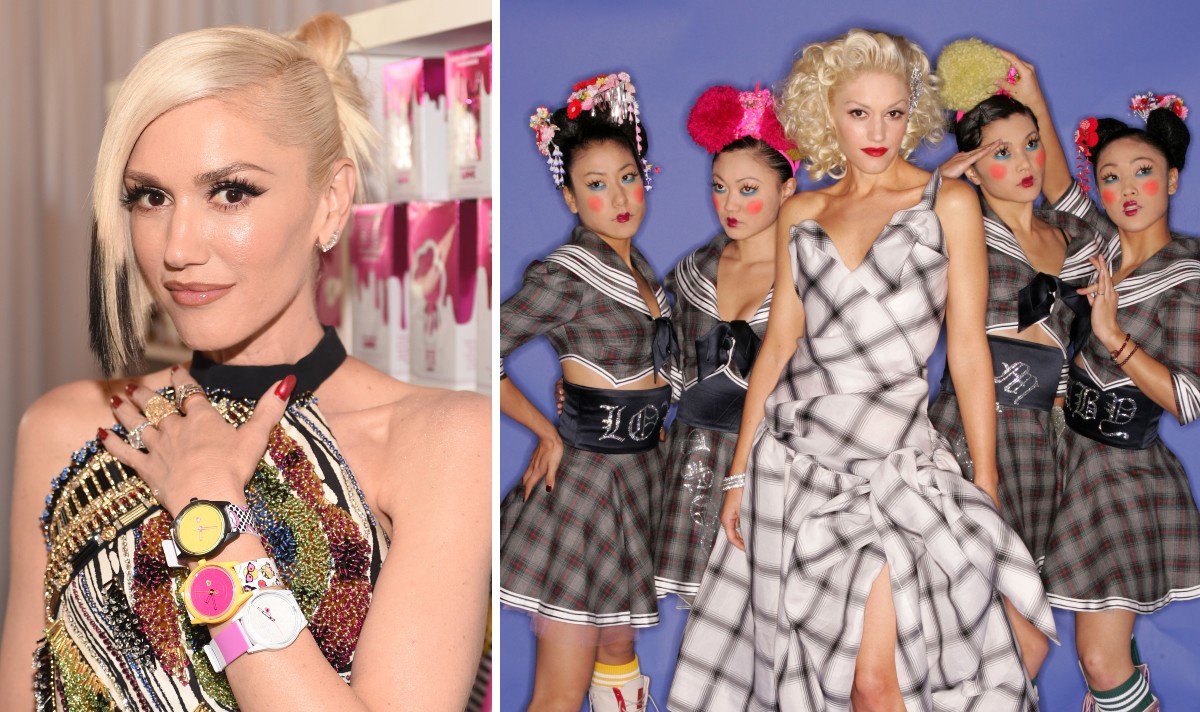Gwen Stefani is getting candid in her latest interview as she reflected on her controversial Harajuku era. The “Hollaback Girl” singer has received plenty of backlash in the past from people who accused her of cultural appropriation for implementing Japanese culture not only into her songs but also into her music videos and businesses.
Aside from personally hiring a string of Harajuku Girls as her backup dancers for her debut album “Love. Angel. Music. Baby” and her sophomore record, “The Sweet Escape,” Gwen, who is Italian-American, also launched her Harajuku Lovers clothing line back in 2005, which was followed by a fragrance of the same name in 2008 and a children’s book titled “Kuu Kuu Harajuku” in 2015.
Gwen Stefani defends her Harajuku era from 20 years ago, calling herself Japanese:
“My God, I’m Japanese and I didn’t know it. I am, you know. If [people are] going to criticize me for being a fan of something beautiful & sharing that, then I just think that doesn’t feel right” pic.twitter.com/oanndBJWgl
— Pop Base (@PopBase) January 10, 2023
RELATED: Blake Shelton And Gwen Stefani Are Officially Married After Nearly 6 Years Together!
But in her latest interview with Allure, the 53-year-old doubled down on her love for the Japanese culture, explaining how her father frequently traveled between California and Japan for 18 years as part of his job. By the time she was an adult, Gwen says she started flying to East Asia pretty frequently herself, adding, “I said, ‘My God, I’m Japanese and I didn’t know it.’ That was my Japanese influence and that was a culture that was so rich with tradition, yet so futuristic.
“[With] so much attention to art and detail and discipline and it was fascinating to me.”
Gwen continued to defend her creative decision to implement Japanese culture into her work, stressing that she shouldn’t feel the need to shy away from the fact that she was clearly heavily inspired — but being inspired doesn’t necessarily mean one should be accused of appropriation, she alluded.
Gwen Stefani tells Allure that she identifies not just with Japan’s culture, but also with the Hispanic and Latinx communities where she grew up.
“Even though I’m an Italian American — Irish or whatever mutt that I am — that’s who I became because those were my people, right?” pic.twitter.com/vFCebYm13s
— Pop Base (@PopBase) January 10, 2023
RELATED: Gwen Stefani Accused Of Cultural Appropriation For Wearing Dreadlocks In Sean Paul Music Video
Gwen expressed. ”I think it was a beautiful time of creativity… a time of the ping-pong match between Harajuku culture and American culture.”
“[It] should be OK to be inspired by other cultures because if we’re not allowed then that’s dividing people, right?”
There’s been a long-standing debate on whether Gwen “stole” from the Japanese culture, with some convinced that her “appropriation” helped boost sales for her first two albums. While the singer herself hasn’t touched on the subject too often, she’s made it very clear that there were no ill intentions in drawing inspiration from another culture.

